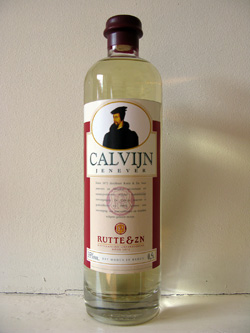 Why are the Dutch so impolite? The German-born historian Christoph Driessen proposes a couple of hypotheses in yesterday’s NRC (Dutch).
Why are the Dutch so impolite? The German-born historian Christoph Driessen proposes a couple of hypotheses in yesterday’s NRC (Dutch).
The Calvinist is interested in the essence of things. Everything else is unnecessary. In that view politeness is quickly seen as hypocrisy in the Netherlands.
The republican form of government of the Netherlands [from 1581 – 1795, Branko] may also have led to a very direct and uncomplicated form of contact. In other countries, manners were largely determined by the aristocracy—hence the word courteous. […] One of the leaders of the republic, Johan de Witt, was mighty enough to oppose the Sun King [Louis XIV, Branko], but when he tried to wear a gold and silver garment to underline that position, instead of the simple black every other Dutchman wore, the troops he tried to inspect jeered and laughed at him.
Considering the Dutch saw themselves as burghers before they became Protestants, I am guessing the second hypothesis may carry the larger weight. Unfortunately, Driessen does not expand on why the republic was such a successful idea in the Netherlands long before it became popular in other Western states.
The historian also points out that since other countries like Germany are letting go of class-based societies, the Dutch head start may actually turn into a disadvantage. Unlike people from other countries who now also learn how to talk straight when needed, the Dutch cannot easily reverse gear and use politeness to sugar coat unpleasant messages, as they have not been brought up in a culture of politeness. Driessen suggests that children could be taught manners in school to remedy this.
(Drawing of a Goop by Gelett Burgess, from a 1903 children’s book on manners.)

 The granddaddy of the War on Fun must surely be Jean Cauvin (1509 – 1564), the French protestant priest who is seen around these parts as more influential than Luther himself. The man was a big believer in hard work and no (earthly) reward, so it is perhaps odd that the trinkets that are being sold in honour of his 500th anniversary are selling like hot cakes.
The granddaddy of the War on Fun must surely be Jean Cauvin (1509 – 1564), the French protestant priest who is seen around these parts as more influential than Luther himself. The man was a big believer in hard work and no (earthly) reward, so it is perhaps odd that the trinkets that are being sold in honour of his 500th anniversary are selling like hot cakes.